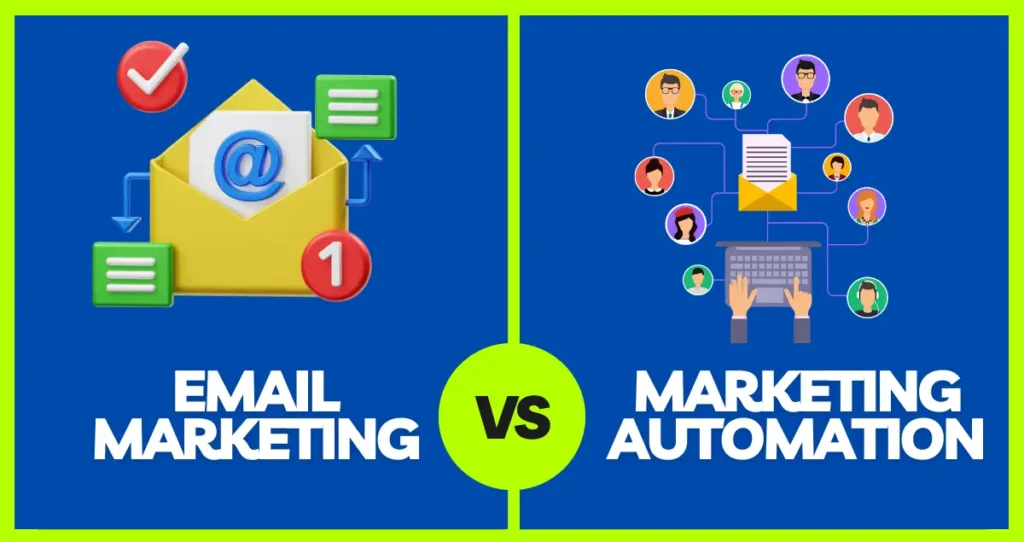In the fast-paced landscape of modern business, efficient time management is crucial for success. One integral practice that plays a pivotal role in this regard is appointment setting. As businesses strive to enhance productivity and customer satisfaction, the strategic scheduling of appointments emerges as a cornerstone. This blog will delve into the multifaceted benefits of appointment setting, shedding light on how this seemingly simple practice can significantly elevate the efficiency, professionalism, and overall success of businesses in diverse industries.
The Essence of Appointment Setting
Appointment setting can be succinctly defined as the systematic process of arranging meetings, consultations, or interactions between individuals or entities at a specified time and location. This can encompass a diverse array of settings, from the realms of healthcare and business to the customer-centric arenas of retail and services. More than a mere logistical exercise, appointment setting is a strategic endeavor that seeks to harmonize the schedules of diverse stakeholders, fostering an environment where time becomes a valuable currency.
At its fundamental level, appointment setting involves the coordination of calendars, ensuring that individuals come together at a predetermined time to exchange information, seek services, or engage in meaningful discussions. This practice is not confined to face-to-face interactions; it has seamlessly transitioned into the digital realm, with virtual meetings and online appointments becoming the norm.
Core Benefits of Appointment Setting
- Time-saving and Convenience for Customers and Businesses:
The primary allure of appointment setting lies in its ability to save time and enhance convenience for both customers and businesses. By establishing a structured schedule, customers can avoid long wait times, ensuring that their interactions are swift, focused, and tailored to their needs. For businesses, this translates into streamlined operations, reduced bottlenecks, and efficient allocation of resources.
- Relationship Building and Personalized Support:
Appointment setting goes beyond the mere act of scheduling; it is a catalyst for building meaningful relationships between businesses and their clientele. When customers are assured of dedicated time and attention during appointments, it fosters a sense of importance and value. This personalized support cultivates trust and loyalty, as customers feel acknowledged and cared for. Businesses, in turn, have the opportunity to tailor their services, address specific needs, and create a positive, lasting impression.
- Financial Advantages: Higher Conversion Rates and Revenue:
From a financial standpoint, appointment setting proves to be a strategic investment with tangible returns. By pre-qualifying leads and prospects through scheduled appointments, businesses can significantly increase conversion rates. Additionally, businesses can optimize their operations, ensuring that resources are allocated efficiently, leading to higher revenue generation.
Automated Appointment Setting: A Game Changer
Automation injects a dose of efficiency into the appointment setting process, revolutionizing the way engagements are scheduled and managed. Online booking systems, chatbots, and AI-driven platforms seamlessly handle the logistics of appointment scheduling, allowing customers to select suitable time slots, receive confirmations, and even make adjustments—all with minimal human intervention.
One of the most compelling benefits of automated appointment setting is the substantial cost savings it brings to businesses. Automated systems eliminate the need for dedicated staff to manage appointment bookings, confirmations, and reminders. This reduction in labor-intensive tasks not only translates to direct cost savings but also frees up personnel to focus on more strategic and value-added activities. Moreover, the efficiency gained through automation minimizes the risk of overbooking or scheduling errors, contributing to operational excellence.
Appointment Setting in Business Strategy
Appointment setting, far from being a mere administrative function, occupies a strategic position within the broader framework of business operations. In the realms of sales strategy and lead generation, its role is pivotal, influencing outcomes and contributing to long-term client relationships.
- Role in Sales Strategy and Lead Generation Activities:
Through strategic appointment setting, businesses can qualify leads, ensuring that their sales teams invest time and effort where it matters most. This pre-qualification process is instrumental in aligning resources effectively, directing attention to prospects with a genuine interest in the products or services offered. The ability to schedule appointments with qualified leads streamlines the sales process, making it more targeted and efficient.
Moreover, in lead generation activities, appointment setting becomes a proactive tool. It goes beyond responding to inquiries, actively reaching out to potential clients, and orchestrating engagements that lay the groundwork for future business relationships.
- Impact on Sales Outcomes and Client Retention:
The impact of effective appointment setting resonates far beyond the initial engagement. In terms of sales outcomes, well-scheduled appointments contribute to higher conversion rates. The dedicated time and attention provided during appointments create an environment conducive to understanding client needs, addressing concerns, and presenting tailored solutions. This, in turn, enhances the likelihood of successful conversions and fosters positive client experiences.
Furthermore, in the realm of client retention, appointment setting plays a vital role. Regularly scheduled check-ins, follow-up appointments, and proactive communication demonstrate a commitment to ongoing support and engagement.
Types of Appointments and Effective Approaches
- Sales Appointments:
Approach: For sales appointments, a consultative and value-driven approach is key. Focus on understanding the prospect’s needs, presenting solutions, and building rapport. Prepare compelling presentations, and actively listen to client concerns to tailor the pitch effectively.
- Consultation Appointments:
Approach: Consultation appointments demand a collaborative and informative approach. Prioritize active communication, provide in-depth insights, and establish yourself as an expert in your field. Ensure that clients leave with a clear understanding and appreciation of the value you bring.
- Client Review Appointments:
Approach: In client review appointments, adopt a proactive and strategic approach. Showcase achievements, address concerns, and discuss future plans collaboratively. Demonstrate commitment to the client’s success and tailor recommendations based on evolving needs.
- Job Interview Appointments:
Approach: Job interviews necessitate a structured and candidate-focused approach. Clearly define the job requirements, ask behavior-based questions, and provide a transparent view of the company culture. Prioritize two-way communication to ensure a mutually beneficial fit.
- Virtual Appointments:
Approach: With the rise of remote interactions, virtual appointments require a tech-savvy and engaging approach. Utilize video conferencing tools, maintain a professional virtual environment, and leverage multimedia presentations to enhance communication.
- Healthcare Appointments:
Approach: In healthcare appointments, a patient-centric and empathetic approach is crucial. Clearly communicate medical information, address patient concerns, and involve patients in shared decision-making. Ensure a supportive and caring environment.
- Financial Consultation Appointments:
Approach: Financial consultations demand a data-driven and personalized approach. Analyze financial profiles, educate clients on investment options, and provide tailored financial plans. Build trust through transparency and a comprehensive understanding of client goals.
The Role of an Appointment Setter
Responsibilities and Skills of an Appointment Setter:
Appointment setters serve as the initial point of contact between a business and its potential clients. Their responsibilities include:
Prospecting
Identifying and reaching out to potential leads through various channels.
Communication
Articulating the value proposition clearly and persuasively to encourage appointments.
Qualification
Assessing the suitability of leads by understanding their needs and requirements.
Scheduling
Efficiently managing calendars to arrange appointments that align with both client and business schedules.
The skills required for success in this role encompass effective communication, active listening, and the ability to adapt to various client personas. Appointment setters must be persistent, persuasive, and possess a keen understanding of the products or services they represent.
Tools Used by Appointment Setters for Efficiency:
To navigate the complexities of appointment setting, professionals in this role leverage an array of tools designed for efficiency and effectiveness, including:
Customer Relationship Management (CRM) Systems
Organize and manage client information, track interactions, and streamline communication.
Email Automation Platforms
Facilitate personalized and timely email communication with leads.
Appointment Scheduling Software
Simplify the process of coordinating schedules, sending reminders, and minimizing no-shows.
Call Scripting Software
Provide structured and effective scripts to guide conversations and address common queries.
Data Analytics Tools
Analyze performance metrics to refine strategies and enhance appointment-setting outcomes.
Tailoring Appointment Setting Strategies
Understanding Your Target Audience:
A crucial foundation lies in researching and comprehending the unique needs, challenges, and preferences of your target audience. Tailor your messaging to resonate with their specific pain points and aspirations, demonstrating a genuine understanding of their context.
Embracing Personalization:
Inject a personal touch into your communications to captivate attention. Incorporate details relevant to the prospect’s industry, recent achievements, or business model. This personalization not only garners interest but also establishes a connection based on genuine engagement.
Strategic Timing Matters:
Be mindful of when you reach out to prospects. Consider industry trends, peak business hours, and the individual prospect’s schedule to increase the likelihood of a positive response. Strategic timing demonstrates consideration for their time and priorities.
Diversifying Communication Channels:
Employ a versatile approach by leveraging various communication channels. Combine email, phone calls, and social media outreach based on the preferences of your target audience. A diverse approach ensures you connect through their preferred means of communication.
Emphasizing Value Proposition:
Clearly articulate the value your product or service brings to the prospect. Align your offerings with their specific needs, emphasizing practical benefits. Demonstrating a clear value proposition enhances the appeal of your appointment.
Crafting Engaging Conversations:
Develop compelling scripts that guide conversations while allowing for dynamic interactions. Anticipate common objections and equip your team with persuasive responses to address concerns effectively. Engaging conversations build rapport and pave the way for successful appointments.
Continuous Adaptation and Optimization:
Regularly analyze the performance of your appointment setting strategies. Incorporate feedback, track conversion rates, and iteratively refine your approach to align with evolving market dynamics. Adaptability is key to ensuring sustained success.
Harnessing Technological Tools:
Leverage advanced tools such as CRM systems and automation platforms to streamline and enhance your appointment setting processes. Utilize analytics to gain insights into prospect behavior, enabling data-driven optimizations for increased efficiency.
Best Practices for Setting Appointments
Optimizing the appointment-setting process is essential for efficient business operations and successful client engagements. Embrace these best practices to enhance the effectiveness of your appointment-setting efforts:
- Clear Communication:
Ensure your communication is clear, concise, and tailored to the needs of your audience. Clearly articulate the purpose and value of the appointment to engage prospects effectively.
- Proactive Follow-Up:
Implement a proactive follow-up strategy to confirm appointments, provide necessary details, and address any potential concerns. This builds confidence and demonstrates your commitment to a seamless experience.
- Utilize Technology:
Leverage advanced tools and technologies, including appointment scheduling software and CRM systems, to automate and streamline the scheduling process. This enhances efficiency and reduces the risk of scheduling errors.
- Flexible Scheduling Options:
Offer flexible scheduling options to accommodate diverse preferences. Provide choices such as online booking, phone scheduling, or virtual appointments to cater to the varied needs of your audience.
- Prioritize Time Management:
Respect the time of both parties involved. Set realistic timeframes for appointments, and ensure that the process is as time-efficient as possible to enhance the overall experience.
Overcoming Appointment Setting Challenges
Common hurdles include missed appointments, unresponsive leads, and scheduling conflicts. Address these challenges with strategic solutions:
- No-Shows and Cancellations:
Combat no-shows by implementing automated reminders, personalized follow-up communication, and clear expectations regarding the value of the appointment.
- Unresponsive Leads:
Enhance lead responsiveness by diversifying communication channels, utilizing engaging messaging, and adapting follow-up strategies based on prospect preferences.
- Scheduling Conflicts:
Mitigate scheduling conflicts by offering flexible appointment times, utilizing advanced scheduling tools, and ensuring transparent communication about availability.
- Ineffective Communication:
Improve communication by honing your message for clarity, personalization, and value proposition. Utilize technology to automate and optimize communication processes.
Appointment Setting: A Cost-Effective Sales Tool
Outsourcing appointment setting allows businesses to optimize their resources effectively. Instead of allocating internal staff to cold calling and appointment scheduling, which can be time-consuming, businesses can rely on specialized services. This ensures skilled professionals handle the intricate process of engaging prospects, allowing internal teams to focus on core competencies.
Appointment setting services often utilize advanced technologies and experienced personnel, contributing to enhanced efficiency. By targeting qualified leads and employing personalized communication strategies, these services increase the likelihood of successful conversions. This efficiency translates to a higher return on investment and a more cost-effective sales process.
Market research is a linchpin in effective appointment setting. Understanding the target audience, their needs, and market trends allows businesses and appointment setters to tailor their approach. This personalized strategy not only increases the chances of securing appointments but also ensures that the engagements are relevant and valuable to potential clients.
Minimizing no-shows and cancellations involves implementing automated reminders, clear communication about the value of the appointment, and personalized follow-up strategies. These practices enhance client commitment and reduce the likelihood of missed appointments.
Conclusion
Appointment setting stands as a linchpin in modern business strategies, offering a myriad of benefits that extend beyond mere scheduling. From optimizing resource utilization and enhancing client relationships to boosting conversion rates and fostering efficiency, the impact is profound. By incorporating strategic appointment setting into business practices, organizations can streamline operations, maximize productivity, and create personalized, value-driven engagements. In the dynamic and competitive landscape of today, embracing the power of appointment setting is not just a choice; it is a strategic imperative for businesses aspiring to thrive and succeed in their respective industries.







